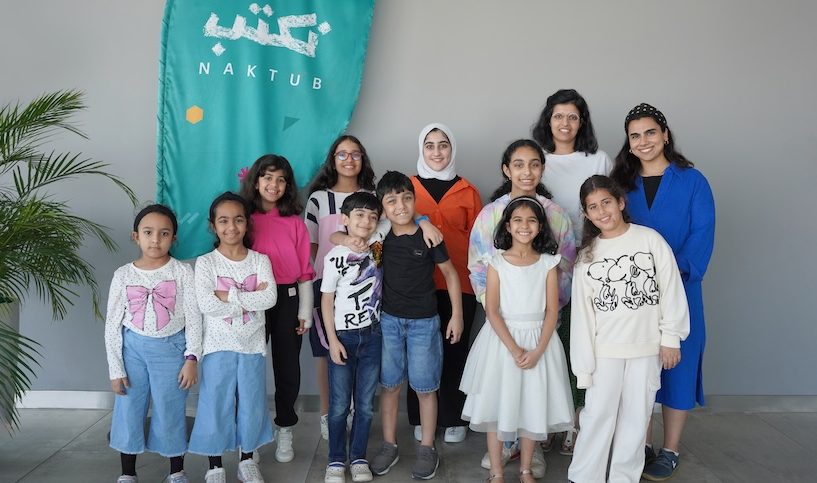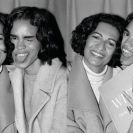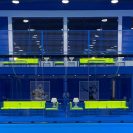When you step into the vibrant world of Naktub, you’re immediately enveloped by an atmosphere of creativity and cultural pride. This unique program for children aged 8-12, initiated by the Promenade Culture Centre (PCC), is a testament to the power of a holistic approach. Naktub is not just about learning Arabic; it’s about falling in love with the language through diverse artistic expressions like performing arts, storytelling, and calligraphy.
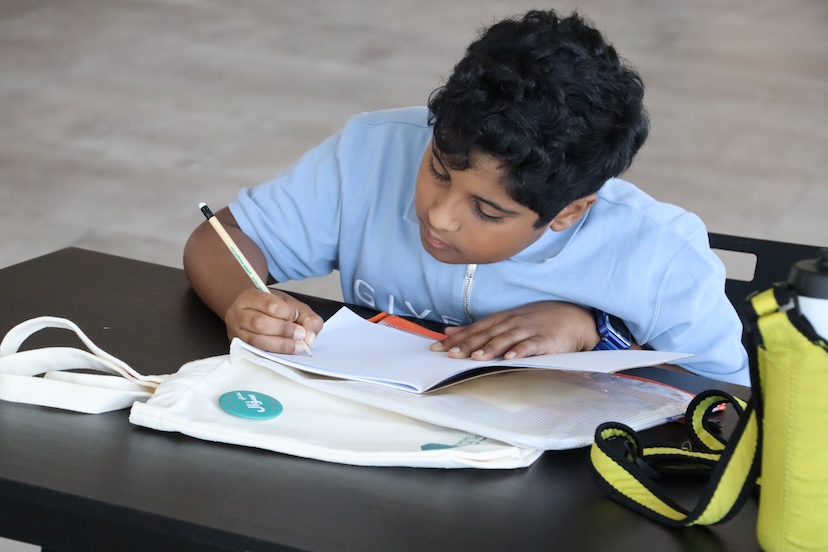
Ksenia Graovac, the visionary PCC manager, is the driving force behind children’s education programs. She shares the inspiration behind Naktub: “When we embarked on this new journey at PCC nearly five years ago, our goal was clear—to foster a culture of increased artistic and cultural engagement in Kuwait. We knew that to achieve this, we had to start with the youngest minds. By exposing children to cultural and artistic content early on, we aim to nurture responsible, engaged adults who appreciate the richness of their heritage.”
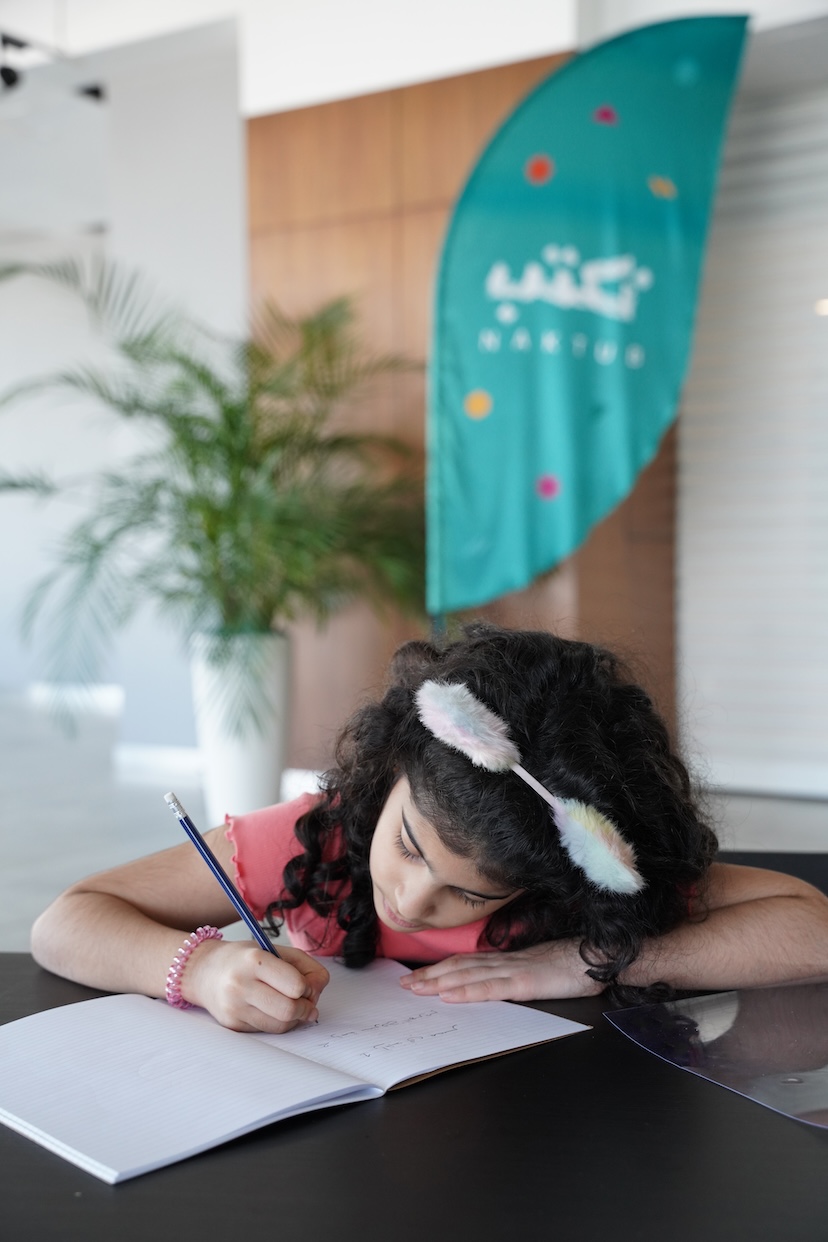
We love how the PCC envisioned a program that understands the necessity of enhancing children’s reading and writing skills in Arabic, a program that goes beyond conventional grammar lessons. “Naktub isn’t a language course; it’s a creative writing journey,” Ksenia explains. “We wanted children to explore Arabic as a form of expression, to find their inner storytellers, and to see language as a bridge to understanding the world around them.”
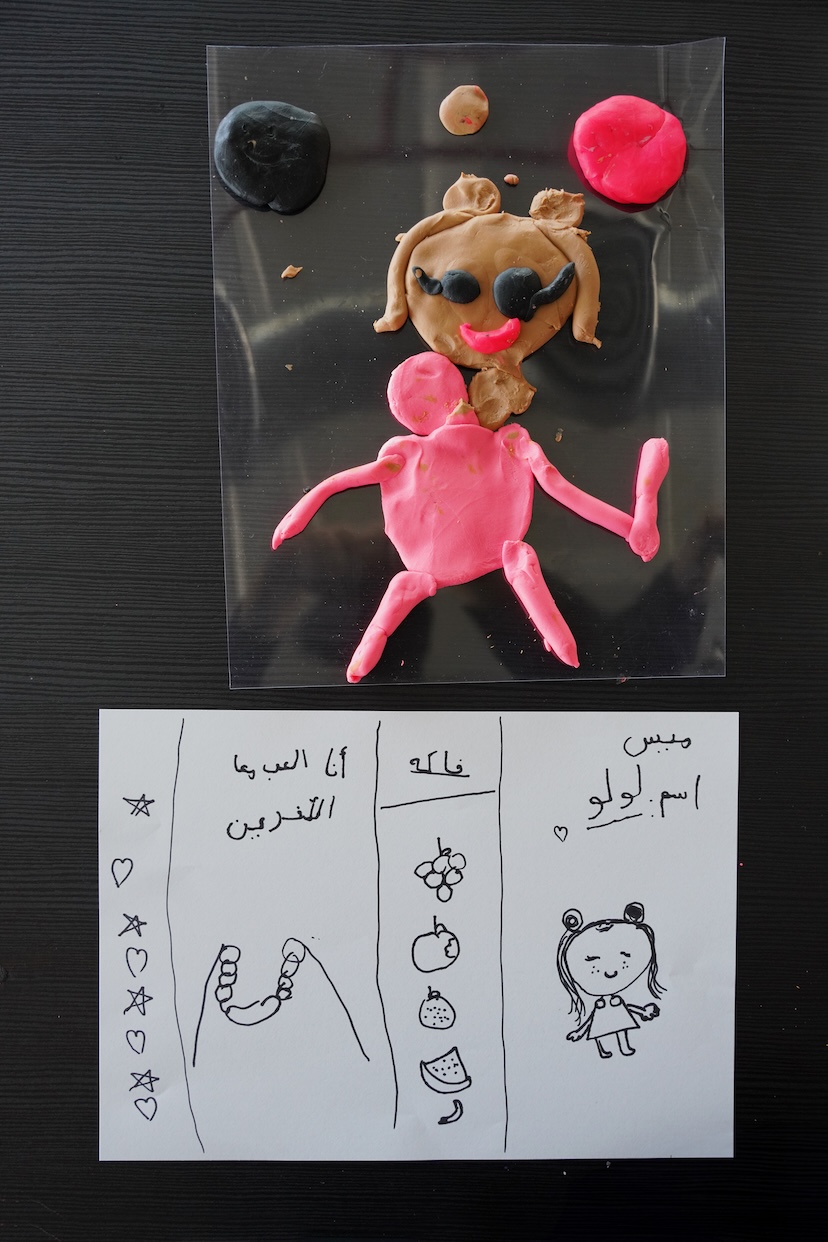
In today’s day and age, we the bazaar team agree that cultural expression is even more important and are so excited to see this program making such leaps. At the heart of Naktub are its dedicated instructors, Lolwa Al Kandari and Deema Al Ghunaim, who bring their multidisciplinary backgrounds to the classroom. Lolwa, who has a keen interest in psychology and law, reflects on the partnership with the PCC: “The genuine interest the Promenade Culture Centre shows in building a creative community rooted in our Arabic culture was the main reason for my excitement. Their support has made teaching a joyful and rewarding experience.”
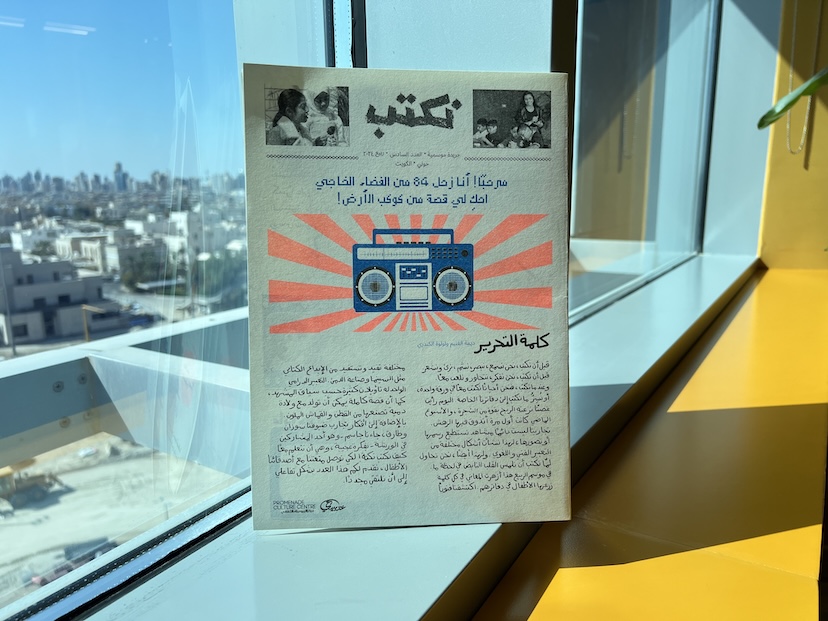
Deema Al Ghunaim, who was drawn to the program through a referral and her deep love for the Arabic language, shares, “The Arabic language is central to my art practice, and working with children helps me explore this language in its most dynamic and raw state. I also loved Ksenia’s approach, being a poet herself, she had a personal interest in the programme giving it a great level of care and appreciation. The fact that it was suggested as a long term project definitely drew me into going forward with the idea.”
The program’s success lies in its innovative teaching methods. Lolwa and Deema avoid rigid right-and-wrong paradigms, instead encouraging children to reflect on their spelling and the nuances of meaning. “Our goal is to introduce creative ways of communicating through language and not tie it up to pen and paper. We avoided the binary approach of right and wrong, allowing them to reflect on their spelling and how meaning changes when the word is spelled differently. The programme is also curated in a way that allows for the participants’ reflections and stories to breathe and flourish. Every thought is heard and cared for, we then try to pass them through different channels and mediums. This intuitive approach goes in harmony with the children’s energy and thinking process,” Deema notes.
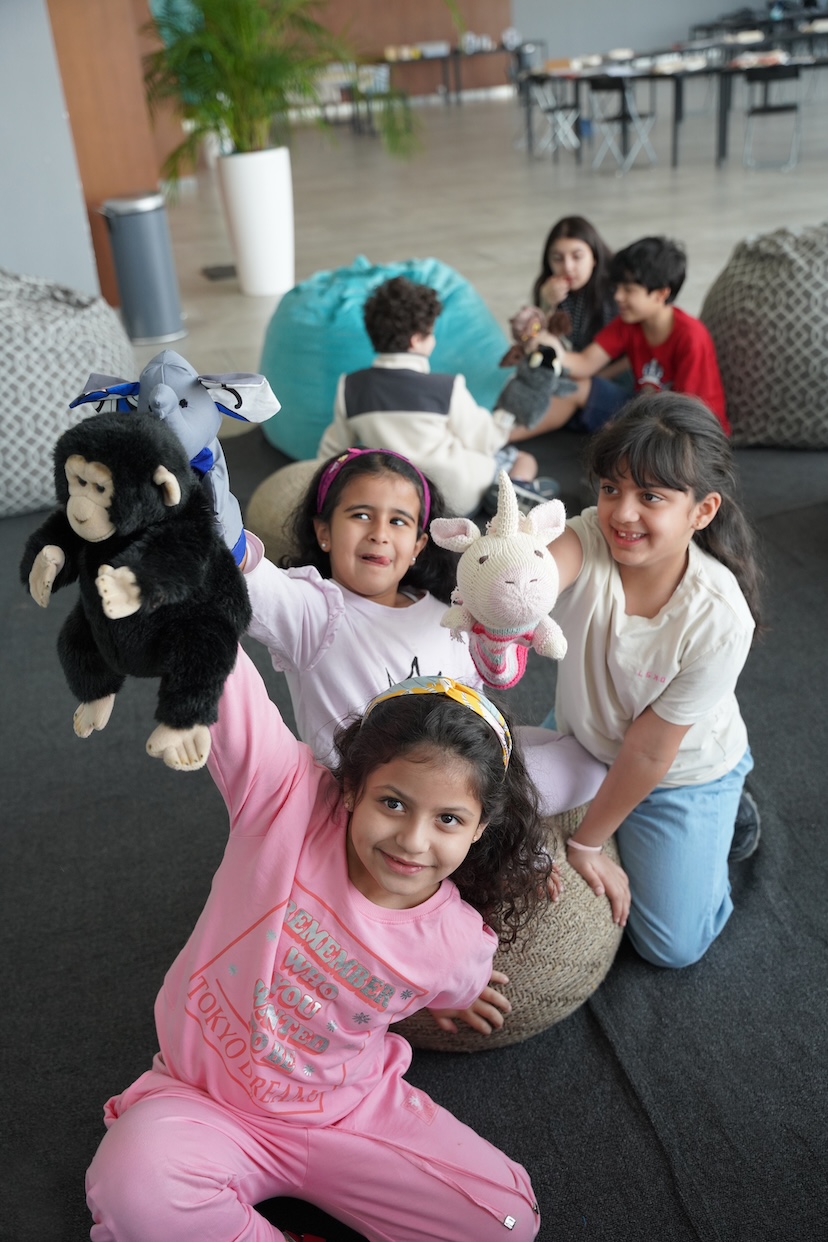
One of the program’s highlights is the production of a zine at the end of each cycle. This collaborative project allows children to see their work published, instilling a sense of pride and accomplishment. “The zine is a tangible reminder of their time with us,” says Lolwa. “It tells our students that their voices matter and that their stories are valuable.”
Guest instructors from various artistic disciplines further enrich the program. These creatives bring unique perspectives and help children explore the Arabic language through different lenses. From playwriting and music composition to architecture and graphic design, these sessions demonstrate the vast possibilities within creative writing.
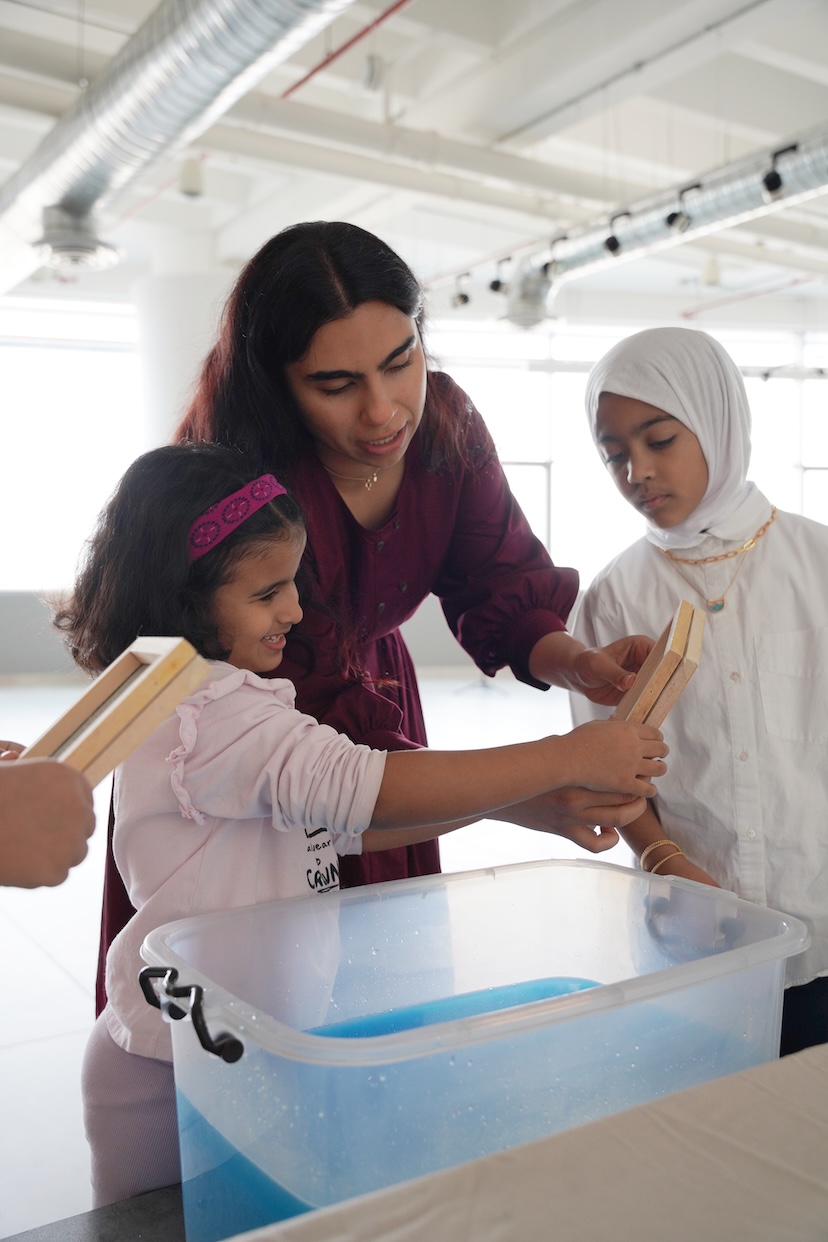
Naktub’s impact on the children is profound. “We’ve seen remarkable growth in their confidence and creativity,” Lolwa shares. “By giving children our full attention, they surprise us with their development.” Deema echoes this sentiment, emphasizing the importance of the sensory and performative aspects of learning: “Our approach highly depends on the material world. We highlight the sensory layer of meaning and how the Arabic language is connected to the flora and fauna of its regions, just as much as it is connected to phonetics, rhythm and music.”
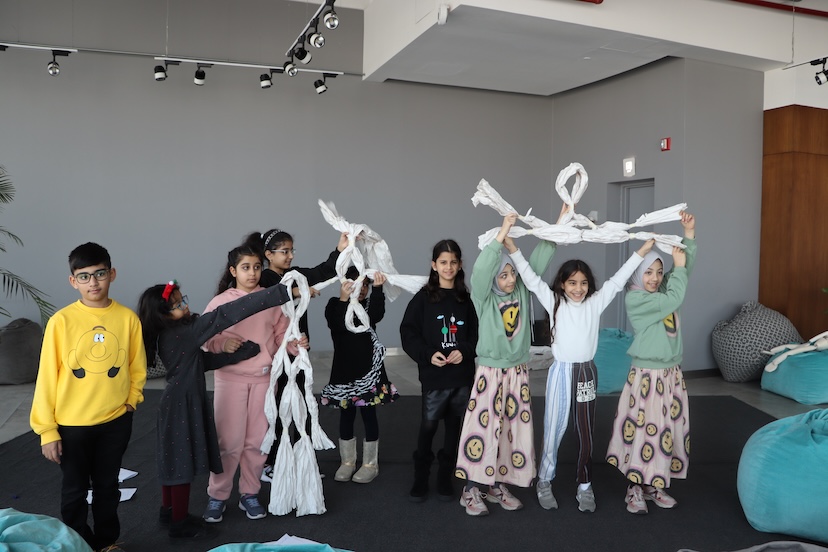
The ultimate goal of Naktub is to foster a deep, enduring love for the Arabic language and cultural identity. Ksenia concludes, “We want children to understand that language is a powerful, positive force. It connects us, celebrates our differences, and allows us to find ourselves within our stories.”
We are so inspired by the Naktub program and cannot wait to see the outcome of the next zine. To learn more about Naktub and see the incredible work being done, follow Promenade Culture Centre on Instagram: @pcckuwait.

